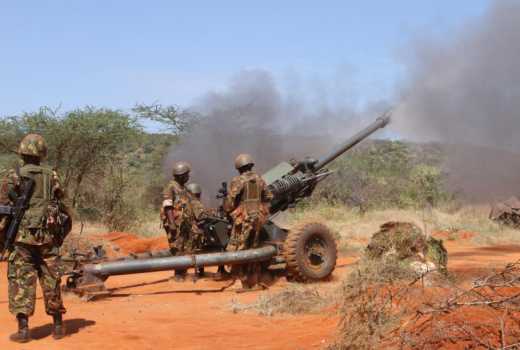×
The Standard e-Paper
Fearless, Trusted News

Bodies of men killed in a suspected terror attack on Thursday were Friday airlifted to Nairobi, two days after President Uhuru tabled a report citing terrorism as greatest threat to security.
The bodies of John Macharia, Francis Kaibei, Zacharia Kanyi and Peter Kamau arrived in Nairobi in a flight that had Cliff Osoro and David Wahome, who survived the attack in Shimbir Fatuma, Mandera.